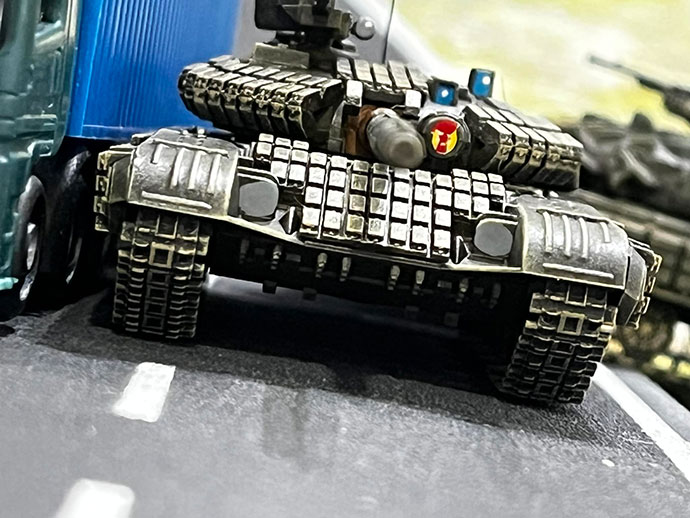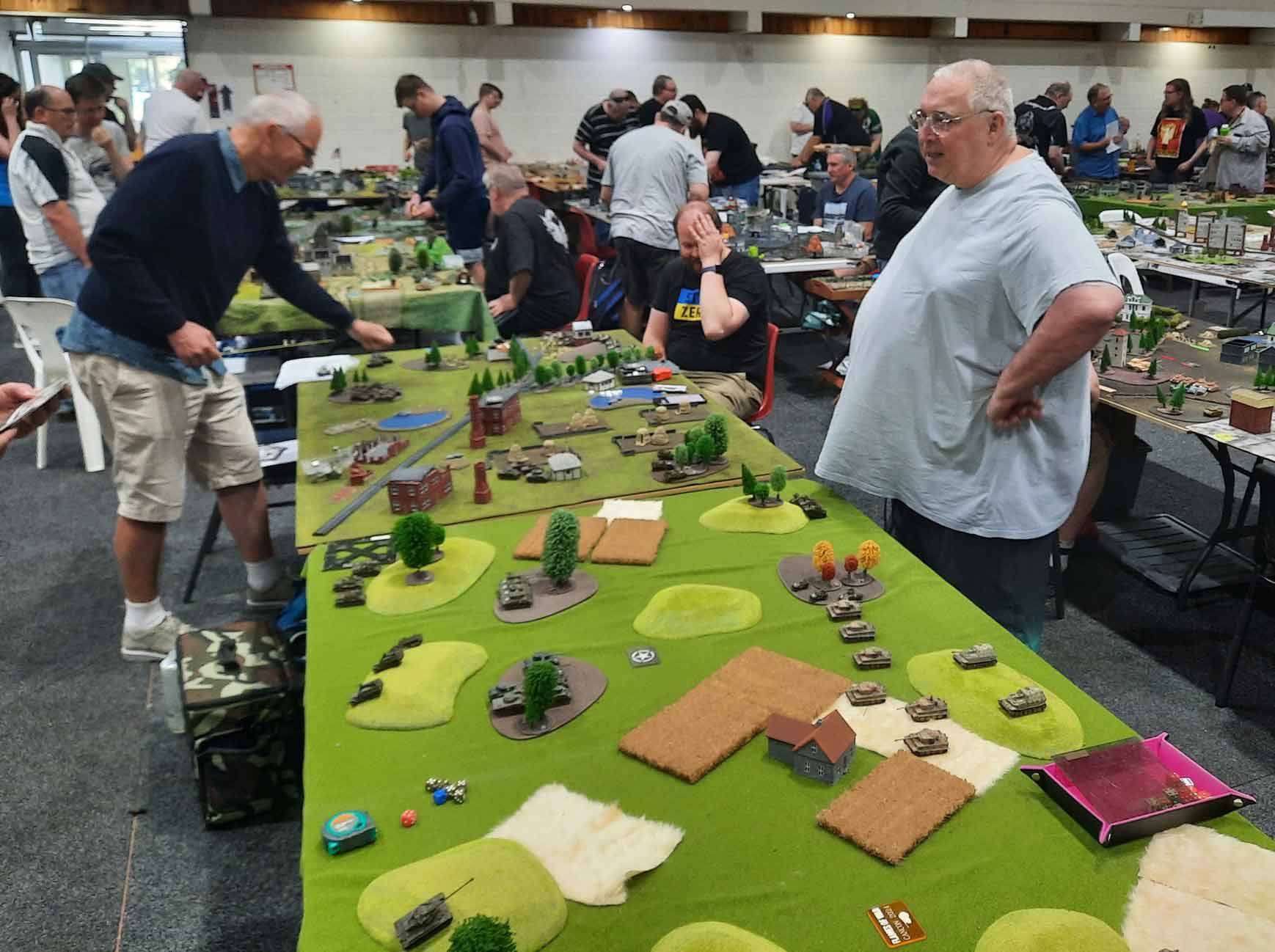|
|
How To Plan For a Team Game
|

|
How To Plan For a Team Game
By Garry Wait
Remember that in all forms of gaming, this is a social agreement between you and your opponent. An agreement or contract for mutual enjoyment which means you both have a part to play in the fun you derive from this hobby. Think about how much you can enjoy a weekend’s gaming experience and how you can seek to improve the fun level.
|
| This article has some suggestions to encourage players in multiplayer games to gain more satisfaction and better enjoyment from the games. It’s my experience that team games of two or more players a side can be slower and more intense but the overall reward of enjoyment can be heightened in much the same way as if you are part of a football or basketball or similar sporting team. Winning is a side benefit! |
|
Here in Australia we are hosting for the first time a national event of WWIII: Team Yankee team based games with two players a side on an 8’x6’ (2400mm x 1800 mm tables) and combined armies of 160pts each team. This has been tested extensively with our NSW contingent who have shown me the sheer joy of having a mutual game with three other players as well as a much larger manoeuvre space. The concept is of course the same whether you are running WWIII: Team Yankee or Flames Of War.
|
 |
|
Here are some things you can do in advance to improve the game:
- Have a plan for your team’s list. Discuss with your team mate what they intend for their list and try to complement their choice. This includes what stance to use – Attack, Manoeuvre or Defend.
- Work out your reserves options in advance. This is good not only for saving time but also helps for you to plan your tactics on the table. As an example, if you have an opponent with no air, maybe have an option for leaving your AA in reserve, while another option might be to have some heavy armour in reserve.
- Pack a serving tray so that you don’t need to unpack your army bag prior to each game. This should be a stable and large platform to carry your miniatures from table to table, preferably with legs to allow you to move minis easily from the tray to the table.
- Try to have a way of packing your unit cards into a photo album or similar. Better still, try to read up about your unit’s stats and see what will work in advance. On the game table isn’t the place to find out that your Warriors have a 10”/25cm move if just firing machine guns, better to know in advance.
|
| Once in the game, remember that we are all here to have a good time, not to win at all costs. Be courteous to not only your opponents but your team mate and give them the benefit of the doubt if a dice is cocked or a rule is uncertain. I work on the basis that if the game isn’t going to be affected materially with a rules discussion, leave it for later and run with your opponent’s concept. Worst case, roll a dice and odds your opponent is right, evens you are. More time is wasted with rules discussions that can affect an outcome much more than from a wrong ruling. |
| Try to think ahead to what you will do not just next turn but in two or three turns. Much like a chess grand master, your game won’t usually be won on turn one, so try to think ahead to have a plan. Even if it’s not your turn to move and fire, if you aren’t involved in saves for incoming fire at your forces then try to think to what you will do in your turn. |
| Time management is crucial when you have multiple players on a side. Don’t take too long to move, don’t go back to moving something you already moved. A bad plan is always better than no plan at all. Don’t assume your partner will remember everything and don’t assume your opponents are trying to sneak things past you, we are all human and best to extend courtesy in a game. Remember no one here is earning their income from winning games of toy soldiers. |
|
Good manners and friendliness tends to be a mutual thing, show some consideration and your opponents are going to be grateful for your understanding.
|
|
When you have two or more players a side, games can sometimes slow down into having one of the players doing all the dice rolls and another receiving. Try to think ahead and work out what you need to do so that if one of your opponents is busy, you can roll dice with the other person.
|
| Remember as a courtesy it’s fine if you witness dice rolls for your partner’s forces when the enemy is rolling dice to hit them. |
| I always admire one of our champion players in Australia who runs large Soviet infantry forces. He is brilliant in that if he needs a 7 or more to hit with firing of AT19 or less from infantry forces, he simply moves on and doesn’t bother. It’s rare such a shot will make a difference and he figures it better to get more turns in than hoping to do more damage with a lucky shot in his turn. I’ve seen the guy win at state and national level this way, so there must be something to it ! |
Last Updated On Friday, February 9, 2024 by Kevin
|
|
|
 |
|